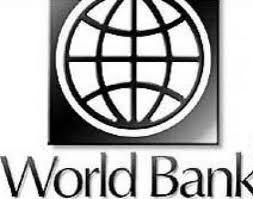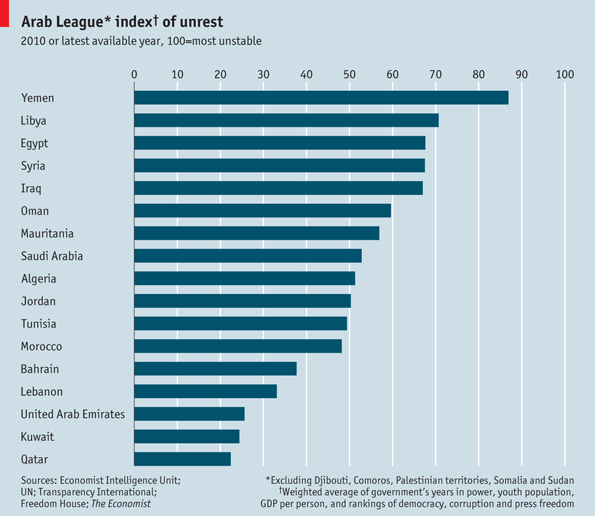 MARSEILLE, France – Wealthy countries and international lenders promised more money yesterday to encourage democratic changes in Arab nations, pledging at least $58 billion.
MARSEILLE, France – Wealthy countries and international lenders promised more money yesterday to encourage democratic changes in Arab nations, pledging at least $58 billion.
After Tunisia and Egypt ousted their authoritarian regimes this year, eight of the world’s most developed economies along with rich Arab countries and a raft of development banks had pledged in May to give $40 billion in support to their nascent democracies and hopefully keep them on the path to open government.
Those uprisings set off revolts across the Middle East, and the Group of Eight and others are now increasing their pledges and expanding the recipients to include Morocco and Jordan.
 So far, at least $58 billion has been promised to the four countries – $38 billion from development banks through 2013 and more than $20 billion from the G-8 and the wealthy Arab countries.
So far, at least $58 billion has been promised to the four countries – $38 billion from development banks through 2013 and more than $20 billion from the G-8 and the wealthy Arab countries.
Yesterday’s meeting was notable for its inclusion of Libya, where rebel forces recently took control of most of the country and are working to create a government to replace Moammar Khadafy’s brutal regime. Libya is not yet officially part of the program but could soon receive funding, according to Jim Flaherty, Canada’s finance minister.
Libya’s vast oil wealth means it is unlikely to need substantial aid over the long term, but its oil exports slowed to a trickle during recent fighting, and rebel leaders are still waiting for funds that were frozen under Khadafy to be handed over to them. Flaherty indicated that the program could bridge the gap.
“We did not discuss quantum, but we discussed, yes, the reality that the Libyans may require some assistance in the short term,’’ Flaherty said.
British Treasury chief George Osborne said officials would also commit to lifting sanctions on Libya, unfreezing its assets, and also “significantly get oil production going as quickly as possible.’’
Libya’s new ambassador to France, Mansour Seyf al-Nasr, called the meeting “a success.’’
Tunisia’s finance minister, Jelloul Ayed, also praised the meeting and said it would be determined later how much each Arab country gets.
In another step for Libya’s Transitional National Council, it won recognition yesterday from the International Monetary Fund, according to the organization’s chief, Christine Lagarde. She said she would dispatch teams to Libya to help with technical assistance and policy advice as soon as it was safe.
The money is intended to help support “transparent, accountable government’’ and “sustainable and inclusive growth’’ in North Africa and the Middle East, according to a statement from the lenders who pledged the $38 billion.
The plan was hatched in May by the G-8 nations – Britain, Canada, France, Germany, Italy, Japan, Russia, and the United States – as they sought to support the revolts and changes inspired by the Arab Spring.
They hope the money will reward reform. The Syrian government, which is involved in a bloody crackdown on dissent, was pointedly not invited.
Of the lenders, the World Bank is providing the largest share of financing, with $10.7 billion. The African Development Bank has pledged $7.6 billion, the Islamic Development Bank $4.5 billion, with the rest coming from regional bodies such as the Arab Monetary Fund and the European Bank for Reconstruction and Development.
Syria
The head of the Arab League met with Syria’s president, Bashar Assad, yesterday to discuss ways of ending the bloodshed in the country, even as activists reported at least five people were killed in the government’s crackdown on the uprising.
Arab League chief Nabil Elaraby was originally expected to visit Damascus on Wednesday, but the visit was delayed at Syria’s request in what appeared to be a sign of the country’s growing alarm over any outside criticism.
“I heard from him an understanding of the situation and he showed me a series of measures taken by the Syrian government that focused on national dialogue,’’ Elaraby said in a statement after the meeting.
He described the talk with Assad as a “frank conversation,’’ but offered few details.
Also yesterday, the London-based Syrian Observatory for Human Rights said security forces killed at least five people in the restive central city of Homs.
Yemen
A Yemeni military official said government forces have driven Al Qaeda-linked militants out of part of a southern city held by the fighters for nearly four months.
The official said that after weeks of clashes and airstrikes targeting the militants, government forces managed to liberate the eastern part of Zinjibar.
Islamic militants seized the town in late May and another a month earlier, taking advantage of the political turmoil unleashed by months of protests against Yemen’s longtime ruler.
The official said fighting was still taking place in other neighborhoods of the city. Yemen’s government claimed that it had reestablished control over the whole city.

Leave a Reply
You must be logged in to post a comment.